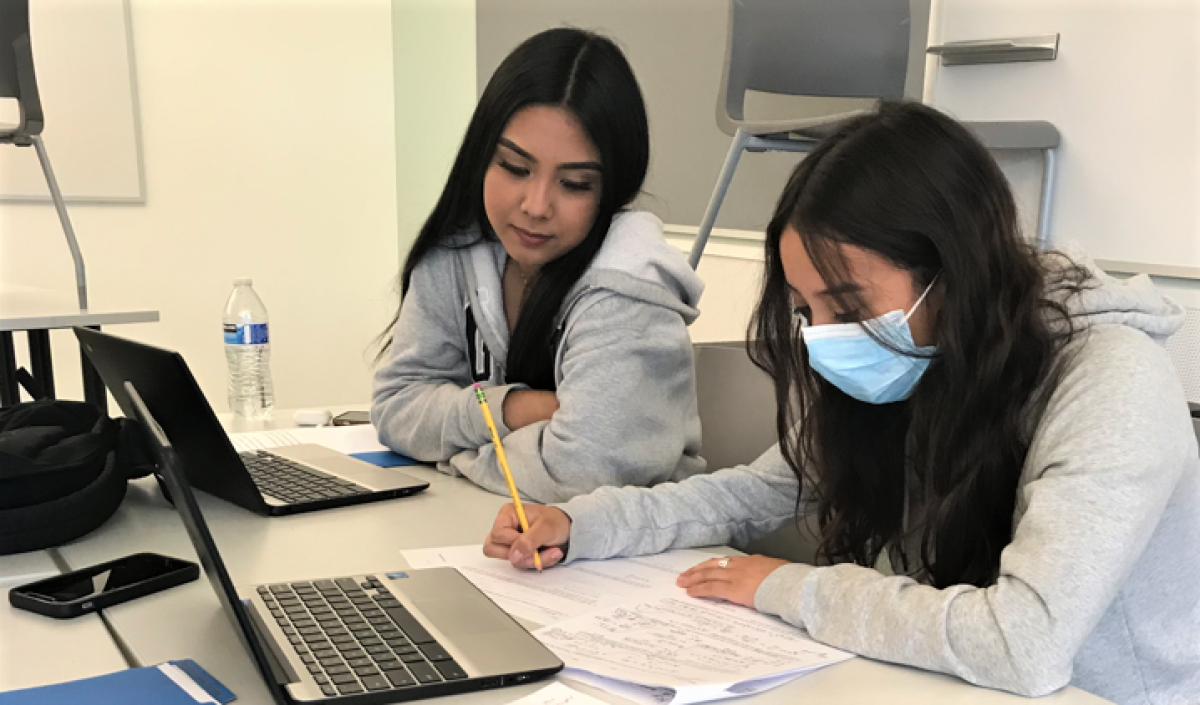District Office
20256 Grim Road NE
Aurora, Oregon 97002
Phone number: (503) 678‑7100
20256 Grim Road NE
Aurora, OR 97002
Phone: (503) 678-7100
Fax: (503) 386-4659

By Jillian Daley and Jason Olson
North Marion High School offered students the chance to complete unfinished classes this June, during the Credit Completion Summer School program, which kept students on track to graduate and will help the school maintain smaller class sizes next year.
With the support of pandemic-era federal funding, the High School held its second year of Credit Completion Summer School, which ended June 30 but may start again in August. Yet it wasn’t the multi-week class do-over that many of us may imagine when we think of summer school. Scheduled for three days last week and four days this week, the part-time classes afforded students the opportunity to wrap up assignments that they missed in a class to transform a failing grade in that class into a passing one.
“One more chance: It’s that idea that they’re given another opportunity,” Credit Completion Summer School Coordinator Jason Olson says. “They haven’t missed the bus yet.”
Olson says that he and the students both found Credit Completion Summer School to be “a pivotal learning experience.”
“It has provided an optional opportunity for me, as a teacher, to reflect and improve my teaching practices,” he explains. “The students I have worked with and prepared for have shown great fortitude in learning from the past year and have made great strides toward becoming better pupils.”
He adds that the program was carefully designed to reflect equitable practices for all levels of students, academically and emotionally.
“It provides a gateway for students to still feel success after the past two years of the COVID pandemic,” Olson says. “We saw many positive outcomes in a short amount of time.”
About 75 students who had 50% to 59% of a class completed were invited to attend to reach that critical 60%, and about 60 of them participated. Participating students enjoyed free breakfast, lunch, and transportation, while polishing off credits. As of June 30, students had finished 23 credits total, with each completed class equal to half a credit.
“They’ve been ambitious: working hard and getting their work done well,” Olson notes.
These students now won’t have to repeat an entire class, moving on with their coursework rather than investing a full trimester in a class that they have already attended.
“It was a relief to be able to complete a credit in English,” sophomore Noemi Soto-Diaz says.
One thing that has made the Credit Completion Summer School so successful has been the focused attention of teachers because the ratio of teachers to students is smaller.
“It has been more beneficial to have a teacher working with a group of 10 students v. 30 students,” sophomore Hayden Miller says.
The Credit Completion Summer School program featured teachers in key subject areas leading and supporting students: Tania Cabrera, Algebra; Kelsey Nieman, Language Arts; Grant Hartenstein, Science; and Ann DeChenne and Kira Barber, History.
Olson also notes that teachers graciously accepted this invitation to teach. To prepare for Credit Completion Summer School, they devoted extra time organizing students’ missed work and exams.
“It is great having teachers take extra time during their summer to help us,” sophomore Gerardo Velazquez Sanchez says.
The IAs have been crucial as well: one is bilingual, another is familiar with GradPoint, and a Special Education IA who is familiar with individualized education programs (IEPs). GradPoint is for students seeking credit recovery, college credit, online classes, GED support, and more. IEPs provide a specific academic plan for a student who is eligible for Special Education services.
“Without as many kids, it’s more relaxing, less stage fright,” says IA Nikole Cranny, who is knowledgeable about GradPoint.
While the teachers and IAs had so much to offer, all of the educators emphasized the power of the student work ethic, putting in the work to reclaim a credit.
“It’s a partnership between the students and the teachers,” Special Education IA Hannah Mack says.
Depending on staffing and student need, there may be another set of classes in August for this preselected group of students. For now, Olson says he is simply glad to have had such a successful Credit Completion Summer School and changed so many lives.
“The students have really expressed gratitude,” Olson says. “You see relief on their faces: ‘Yeah, I’ve finished it!’”
If you have questions, email Credit Completion Summer School Coordinator Jason Olson at jason.olson@nmarion.k12.or.us.
To share stories on the North Marion School District, email Communications Specialist Jillian Daley at jillian.daley@nmarion.k12.or.us.